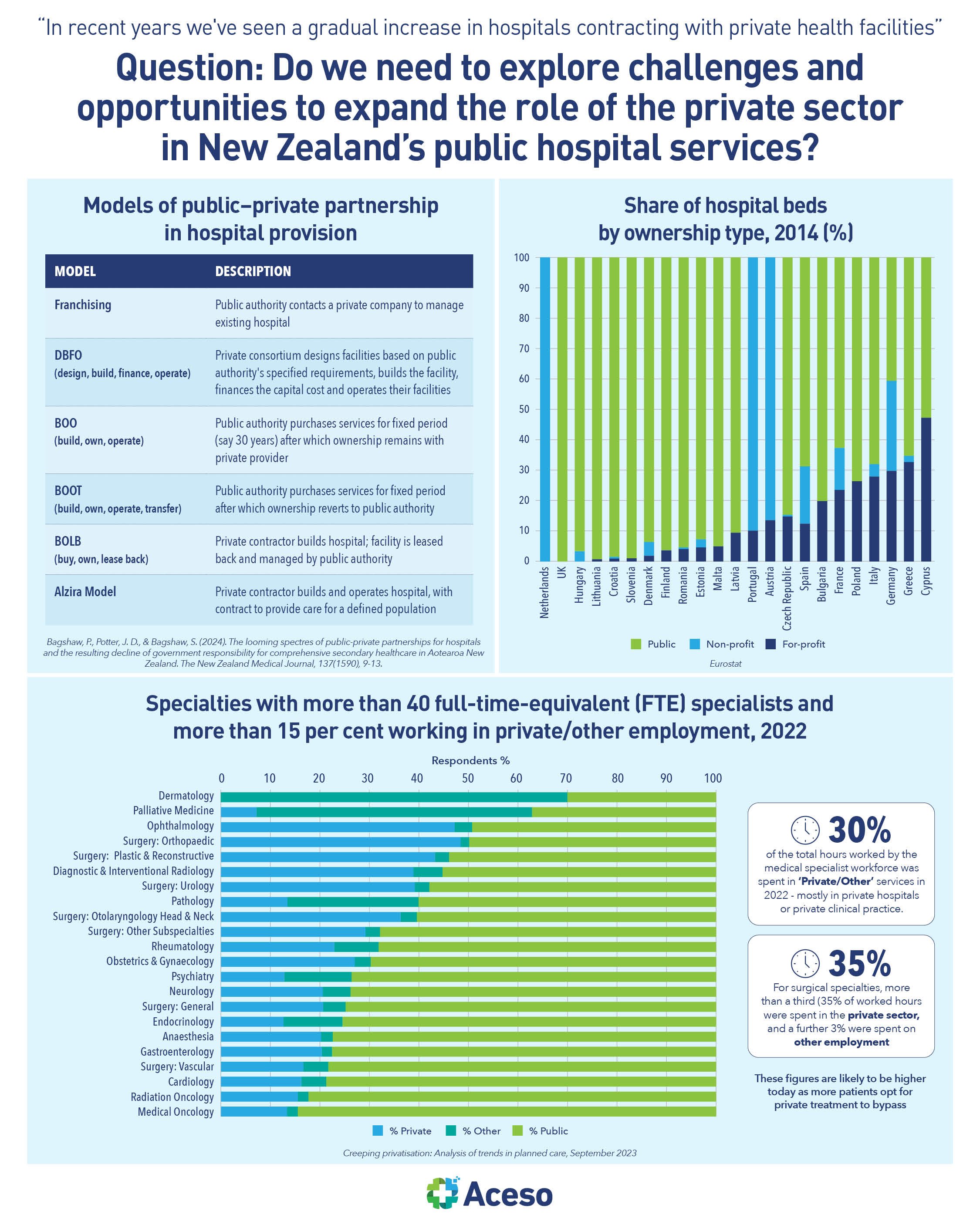Do we need to explore challenges and opportunities to expand the role of the private sector in New Zealand’s public hospital services?
The potential for private sector involvement in New Zealand's public hospital services has garnered increasing attention in recent years. While private participation could offer solutions to some of the challenges facing the public healthcare system, it also raises concerns.
One of the primary drivers for exploring private sector involvement is the significant capital investment needed for hospital infrastructure projects. PPPs are already in use for non-clinical services. The injection of private funds for infrastructure development could reduce the immediate financial burden on the government and spread risks more effectively. The use of private hospitals to address public hospital waiting lists for elective surgeries has already been demonstrated in NZ. Contracting private hospitals to perform certain procedures can reduce waiting times, improve patient satisfaction, and provide greater access to services.
Private sector involvement could also potentially improve operational efficiency in hospitals. Private hospitals are often seen as more agile, providing faster care with fewer bureaucratic hurdles. Outsourcing elective procedures to private hospitals also allows the public system to focus on acute care.
Despite these benefits, there are significant challenges. Evidence from international cases, suggests that outsourcing or fully privatising hospital services might not always lead to better care. In some instances, cost-saving strategies adopted by private operators, like reducing staff or selectively treating patients, have led to diminished care quality. Additionally, the increased reliance on private services could inflate long-term public healthcare costs, as public hospitals outsource more complex cases.
Expanding private involvement risks eroding the government’s responsibility for comprehensive healthcare provision. There is concern that PPPs or privatisation could lead to a reduction in government accountability for secondary healthcare. Critics also argue that the shift toward private care fragments the healthcare system, complicating patient care pathways and increasing health inequalities.
As the private sector expands, there is growing competition for healthcare professionals. NZ already faces challenges in retaining medical specialists, who are increasingly drawn to better pay and working conditions in the private sector. This shift could worsen shortages in the public hospital workforce.
While there are clear financial and operational advantages to expanding private sector involvement in NZ's public hospital services, it is essential to address the potential downsides. Ensuring that the quality of care is maintained, workforce pressures are mitigated, and government accountability is preserved will be key to any successful expansion of private sector roles. Careful planning and regulation are necessary to balance these opportunities and challenges.

